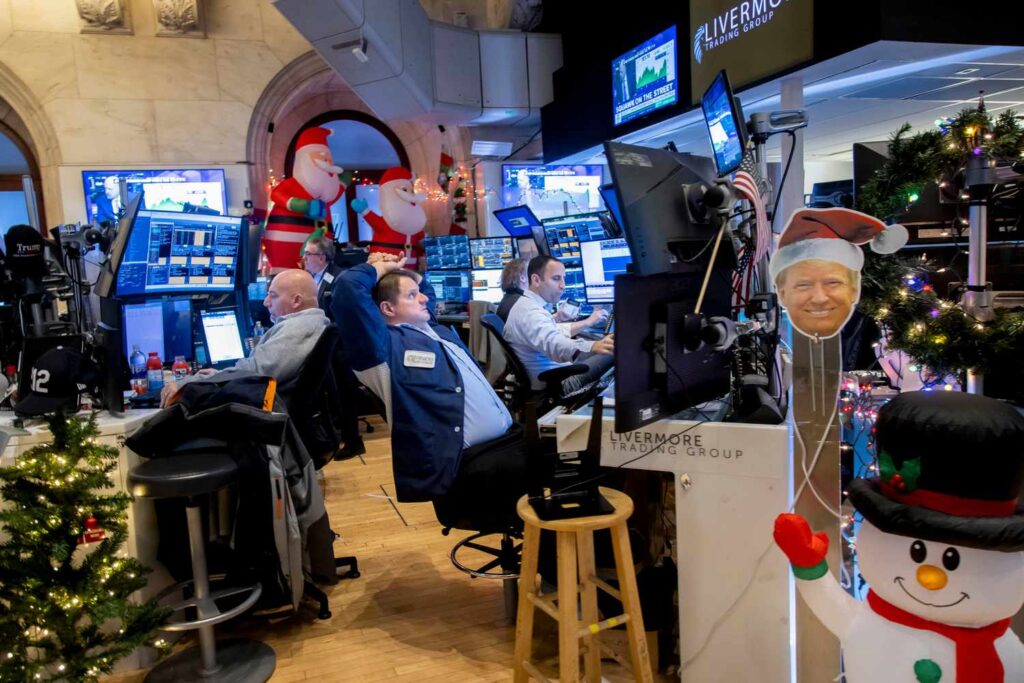:max_bytes(150000):strip_icc():format(jpeg)/GettyImages-2188494189-e82fabf6aa694359a5979bc62a73b701.jpg)
Key Takeaways
- Traders are looking for a so-called Santa Claus rally, in which stocks rise from around Christmas through the second trading session of the next year.
- This is a period when corporate news slows, resulting in relatively stable values for companies, said Paul Hickey, cofounder of Bespoke Investment Group, while money flows into the market
- The rally has occurred more than 75% of the time since the turn of the century, according to data from Carson Group.
Bulls are hoping Santa puts a bow on the strides the stock market has made so far in 2024.
Wall Street is eager for a so-called Santa Claus rally to propel the S&P 500—up about 25% this year through Monday’s close—to new highs. According to Wall Street lore, the stock market consistently rises during the final five trading days of the year and the first two sessions of the next. This year, that stretch starts today.
This is a period when corporate news slows, resulting in relatively stable values for companies, said Paul Hickey, cofounder of Bespoke Investment Group, while money flows into the market. Many people invest bonuses and make trades to minimize taxes, Hickey said.
The market is well poised to rally this year, said Ryan Detrick, chief market strategist at Carson Group, despite the Dow Jones Industrial Average recently falling for several days running and other indexes faltering. (The S&P 500, Nasdaq Composite and Dow all finished last week lower, then rose yesterday.)
There is precedent for weakness in the early part of December, Detrick said, and a range of other reasons—including past trading history around election years and Decembers broadly—for optimism.
“Should you still believe in Santa?” Detrick wrote in a blog post. “We think so.”
Santa has a track record of delivering for Wall Street at the tail-end of Christmas. From the fifth last trading day of the year through the second session of the next year, the S&P rallied 76% of the time from 1999 on, according to Carson Group’s analysis. Gains amounted to an average of 1.7% when there was a rally, the analysis shows.
“It’s a modest rally,” said the Almanac’s editor-in-chief Jeffrey Hirsch, whose father coined the “Santa Claus Rally” phrase. “But when it doesn’t appear, that means that those traders are nervous.”
Some significant economic downturns have emerged after stocks stumbled during these seven sessions, analysts say.
Still, every rule of thumb has exceptions. Last year, the S&P dipped 0.9% during this period—even as the index turned it around and hit a record high in early December.
This article was first published on Dec. 21. It has been updated to reflect new stock-market data.


